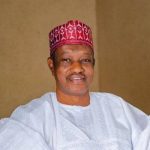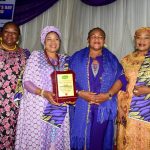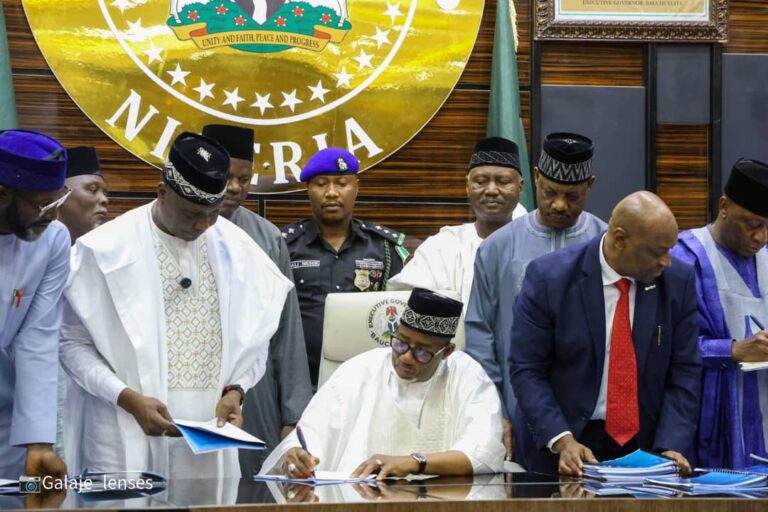Governor Bala Mohammed Assents to Four Key Bills, Establishes Zaar Chiefdom Amid Legal Backing and Historic Reform.
By Bala Salihu Dawakin Kudu
Democracy Newsline Newspaper
October 22, 2025 – Bauchi, Nigeria
In a historic moment poised to reshape the socio-political landscape of Bauchi State, Governor Senator Bala Abdulkadir Mohammed has signed four transformative bills into law, including the creation of the Zaar Chiefdom and establishment of thirteen new emirates across the state.
The event, held at the Council Chambers of the Government House in Bauchi, was attended by government officials, traditional rulers, and community leaders, marking a watershed moment in the pursuit of inclusive governance, justice, and local empowerment.
One of the most symbolic acts of the day was the repeal of the Sayawa Chiefdom Law and its replacement with the Zaar Chiefdom Establishment Law, with its headquarters sited at Mhrim Namchi in Tafawa Balewa Local Government Area. This development brings an end to decades of agitation by the Zaar (Sayawa) people for a distinct and recognized traditional authority.
“This is not just lawmaking; this is justice in motion,” Governor Bala declared after appending his signature. “We are giving communities their voices, their histories, and their futures back.”
The decision is the result of years of consultations, petitions, public hearings, and conflict mediation in a region long beset by identity-based tensions.
The governor’s move is not without legal precedent. According to Section 5(2) of the Nigerian Constitution, the executive powers of a state are vested in the Governor and may be exercised directly or through officials of the state, in line with the Constitution and existing laws.
Specifically, the creation and recognition of traditional institutions, such as emirates and chiefdoms, falls under the jurisdiction of the State Government, backed by various state-specific laws.
In Bauchi State, this authority is rooted in the Chieftaincy Appointment and Deposition Law, which was amended and re-enacted as part of the bills assented to by Governor Bala. This law empowers the governor to: Create and recognize new emirates and traditional councils
Appoint, promote, or depose traditional rulers in accordance with community customs and law
Ensure that traditional rulership reflects the wishes and structure of the people
Legal scholars note that the law aligns with the Federal Constitution’s recognition of traditional institutions as vital components of local governance—albeit without political power.
“The Constitution gives states the power to regulate chieftaincy matters,” explains Dr. Umaru Idris, a constitutional lawyer at the University of Jos. “The governor acts












